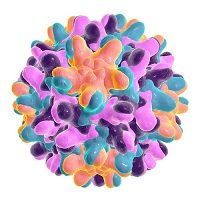Article
Hepatitis Concerns Add to EU Refugee Woes
Author(s):
Public health concerns in Europe mount as data show Syrian refugees have higher rates of HBV than residents in host countries.

Europe is coping with an unpreceded influx of refugees and asylum seekers, particularly from Syria.
As a result, pressures on EU countries include new responsibilities for public health officials.
Those include looking for and then treating hepatitis infections, German researchers reported April 16 at the International Liver Congress in Barcelona.
In a news conference at the International Liver Congress in Barcelona April 16, Philipp Solbach, MD, of the Department of Gastroenterology, Hepatology, and Endocrinology at the Medizinsche Hochscule Hannover, Germany, said that public health physicians at refugee reception centers had offered hepatitis testing to any refugee who came into a clinic for any health problem. By some estimates, more than one million Syrian refugees have entered Germany over the past year.
Though testing at the refugee centers referenced in the study was voluntary, and not related to potential symptoms of hepatitis, they found that 2.3% of those tested had infection with hepatitis B virus as measured by HBsAG, a serological marker.
“That compares to a rate of 0.7% in Germany,“ Solbach said.
“But it is not higher than the rate in Syria, or in migrants who are already working in Germany,” he said.
Those tested also showed a 14% rate of positive results for anti-HBC.
Germany has since begun testing all arriving refugees for the virus, but results are not yet available, Solbach said.
He said all patients with confirmed HVB virus were treated, and those who were negative were offered vaccination. Though there had been internationally sponsored programs to get Syrians vaccinated, the efforts have fallen into disarray and as a result about 63% of Syrians are not vaccinated for the virus, he said.
The report comes among continuing reports of a backlash to German Chancellor Angela Merkel’s “Wir Shaffen Das” (“We Can Do It”) policy of swinging its doors open wide to those coming from the conflict-torn regions of the MidEast.
.




